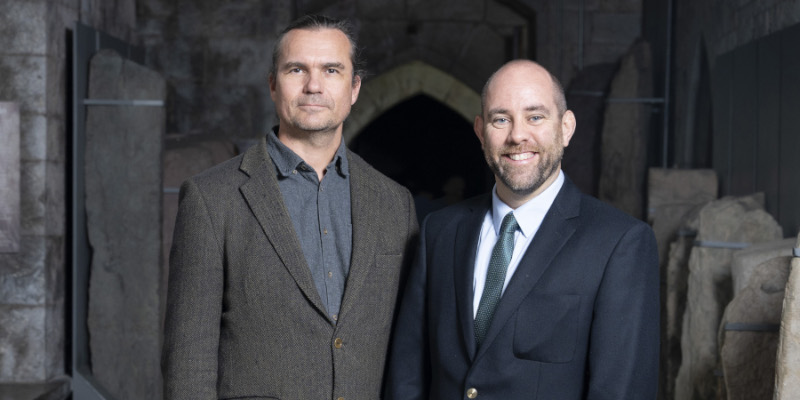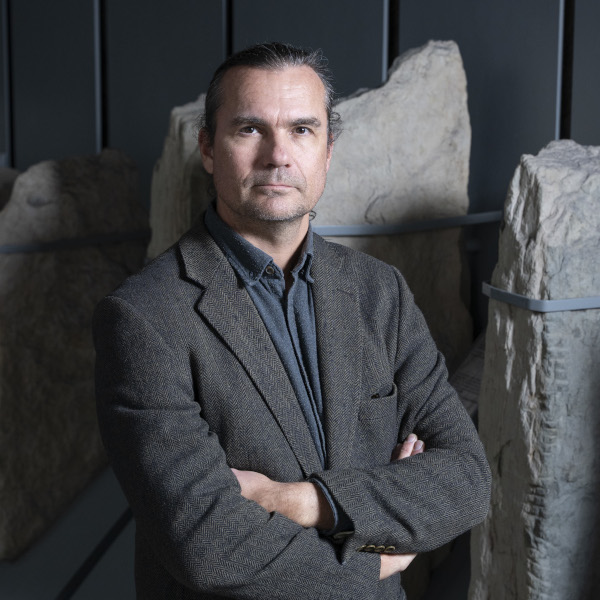In This Section
School of Chemistry academics receive €1.6M for breakthrough in ammonia monitoring and sustainable Li-ion batteries

The Research Ireland Frontiers for the Future Programme funds high-risk, high-reward research programmes and innovative, collaborative research with the potential to deliver economic and societal impact. This year’s Frontiers for the Future Programme was co-funded by Children’s Health Foundation, Breakthrough Cancer Research, and Sustainable Energy Authority of Ireland.
Minister for Further and Higher Education, Research, Innovation and Science, James Lawless TD, today announced a total €34.5 million investment to support 39 cutting-edge research projects nationwide through the Programme.
Announcing the awards, Minister Lawless said, "We are investing in cutting-edge, curiosity-driven research, and empowering individual researchers to progress bold ideas that can lead to groundbreaking discoveries. These awards demonstrate our dedication to building a diverse and inclusive research community that delivers impact for our society and economy. I look forward to seeing the development and outputs of these projects over the coming years."
Professor John F. Cryan, UCC Vice President for Research and Innovation said, "We are immensely proud of our researchers at UCC who will lead these Research Ireland Frontiers for the Future Programme awards. Aligning with several of our UCC Futures thematic areas, these projects will further strengthen UCC’s national and global leadership in delivering impactful research and finding innovative solutions to major scientific, societal and healthcare challenges."
Professor Anita Maguire, Head of School said, "Congratulations to Stig and Colm on securing these prestigious Frontiers for the Future awards from Research Ireland to advance their research in the areas of atmospheric chemistry and sustainable approaches to batteries respectively. Both research programmes align with UCC’s focus on Sustainability through the Futures initiative. These awards will provide an excellent opportunity for early career researchers in our School to undertake research over the coming years and we look forward to exciting and impactful outcomes."
Professor Colm O’Dwyer said, “The work here provides an opportunity to have portable power designed around the function of a device, removing the absolute need to AAA or fixed form factors. The problem with such a large number of single use or small size batteries in everything from vaping to wearables, is the vast number that need to be recycled. The impact of this work can address many of these challenges and provide new opportunities that unlock innovation potential for many industries and technologies that must use smaller batteries in their products. There is a path for small batteries to fit within a circular economy. When batteries that have higher energy because they are lighter in weight, can be fully recycled, we can reduce the ~11kg of battery waste per capita in Ireland (WEEE), to less than 3.5 kg per capita. And all materials can be recycled, upcycled, recovered and reused.”
Dr Stig Hellebust said, “Ammonia in the atmosphere has severe negative implications on the environment and on human health, but current detection methods are not cost-effective. This project will develop the science and technology to detect and quantify gas phase ammonia via new, low-cost, widely available electronic devices based on silicon transistors and chemical properties. The new gas sensing technology will also have commercial potential in the rapidly growing consumer market for air quality monitoring as well as in diagnostics and process control, emission monitoring from agricultural facilities and automobiles, with potential benefits for public health, industry, air quality and climate.”
Details of awards:

Dr Stig Hellebust
Surface functionalisation of silicon devices for electrical detection of gas phase ammonia at atmospherically relevant concentrations (SUREDETECT)
Funding Amount: €809,219
Lead: Dr Stig Hellebust, School of Chemistry.
This project will develop the science and technology to detect and quantify ammonia (an air pollutant) via new, low-cost, and mass-produced surface functionalised silicon devices. The technology has the potential to bring about a significant breakthrough in ammonia monitoring, improved control of ammonia emissions, new insights into atmospheric chemistry, enhance public awareness of air quality and enable more public engagement and citizen science.

Professor Colm O'Dwyer
Fully Recyclable 3D Printable Aqueous Rechargeable Batteries in Any Shape using Sustainable Resources
Funding Amount: €778,147
Lead: Professor Colm O’Dwyer, School of Chemistry.
Additive manufacturing, or 3D printing, of rechargeable batteries can create new form-factor cells moulded to the shape of the device at design stage without compromising energy density at cell level. This project will use sustainable materials to 3D print rechargeable batteries in any shape, so they match the device design and function from the get-go, rather than the other way round. And when the batteries are no longer needed, the outer casings and inner battery materials can be completely recycled and recovered for reuse.
School of Chemistry
Scoil na Ceimic
Contact us
Second Floor, Kane Building, University College Cork, T12 YN60
